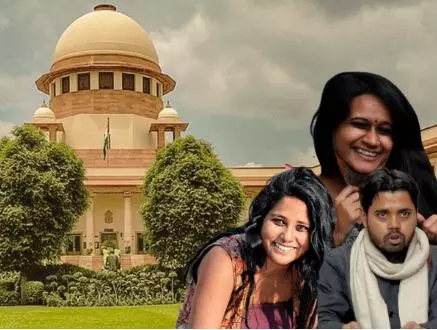
SC dismisses Delhi police’s plea against bail to 3 students booked under UAPA
text_fieldsNew Delhi: The Supreme Court today dismissed the Delhi Police's plea against a Delhi High Court verdict granting bail to three student activists who were accused of being involved in the 2020 Northeast Delhi riots under the Unlawful Activities Prevention Act (UAPA).
The activists, Natasha Narwal, Devanagana Kalita, and Asif Iqbal Tanha, had been in custody for almost a year before being granted bail on June 15, 2021.
Justices Sanjay Kishan Kaul and Ahsanuddin Amanullah, who presided over the Supreme Court bench, stated that the High Court's order should not be considered a precedent due to the comprehensive discussion on merits.
"The purpose of the interim order was to ensure that interpretation and views on law should not be enunciated in the bail hearing. We make it clear that we have not gone into the legal position of the law's statutory interpretation one way or the other," the court said.
The Delhi Police had accused the activists of being involved in a conspiracy behind the riots that occurred in the northeastern part of Delhi in February 2020. However, the High Court observed that the allegations against them did not prima facie disclose the commission of any offence under Sections 15, 17, and 18 of the UAPA. The court held that the additional conditions, limitations, and restrictions on the grant of bail under Section 43D (5) UAPA do not apply.
While granting bail to the activists, the High Court noted that the "line between the constitutionally guaranteed right to protest and terrorist activity seems to be getting somewhat blurred" in the mind of the State. The decision to grant bail to the activists has been welcomed by civil rights activists and criticized by the ruling government.
The case has sparked a debate on the use of the UAPA, which has been accused of being misused by the government to stifle dissent. The UAPA permits the government to designate an individual or organization as a terrorist, leading to their arrest and detention without trial for up to six months, with the possibility of extension. The law has been criticized for its vague definition of terrorism and the lack of safeguards against its misuse.























